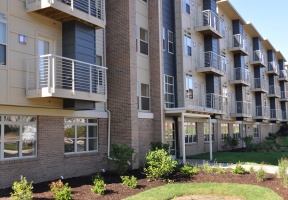

The Illinois Housing Development Authority (IHDA) Board of Directors awarded more than $26.4 million in federal Low-Income Housing Tax Credits (LIHTC) to fund 26 affordable housing developments within 15 counties across Illinois. Once sold to investors, the tax credits will generate an estimated $241.4 million in private capital to finance the creation or preservation of 1,327 affordable apartments for low- to moderate-income families, seniors, veterans, and persons with special needs. The construction activity is expected to support 2,379 full-time construction jobs and 524 permanent jobs after completion. The Low-Income Housing Tax Credit program was created with the passage of the Tax Reform Act of 1986 (P.L. 99–514). The IHDA Board approved some of the following developments to receive tax credits:
Miriam Apartments (Chicago): Rehabilitation of a 66-unit former SRO building in Chicago’s Uptown neighborhood that was acquired by Mercy Housing Lakefront in 1991 and transformed into supportive housing for women at risk of homelessness. Mercy Housing will reconfigure the units to provide private kitchens and baths, add common areas, and improve accessibility to allow for aging in place.
Roosevelt Road Veterans Housing (Chicago): A new five-story development from the Safe Haven Foundation to serve the housing and support needs of homeless and disabled veterans. The development will feature 87 studio and three one-bedroom apartments, as well as on-site supportive services and community amenities.
Hope Manor Village (Chicago): The Volunteers of America of Illinois will build 19 new two-flat buildings on 19 vacant lots on the south side of Chicago for veterans with families who are homeless or at risk of homelessness. Residents will be able to access counseling, case management, youth enrichment programs, employment services and peer support at nearby Hope Manor II, an earlier phase of the initiative opened in 2014.












